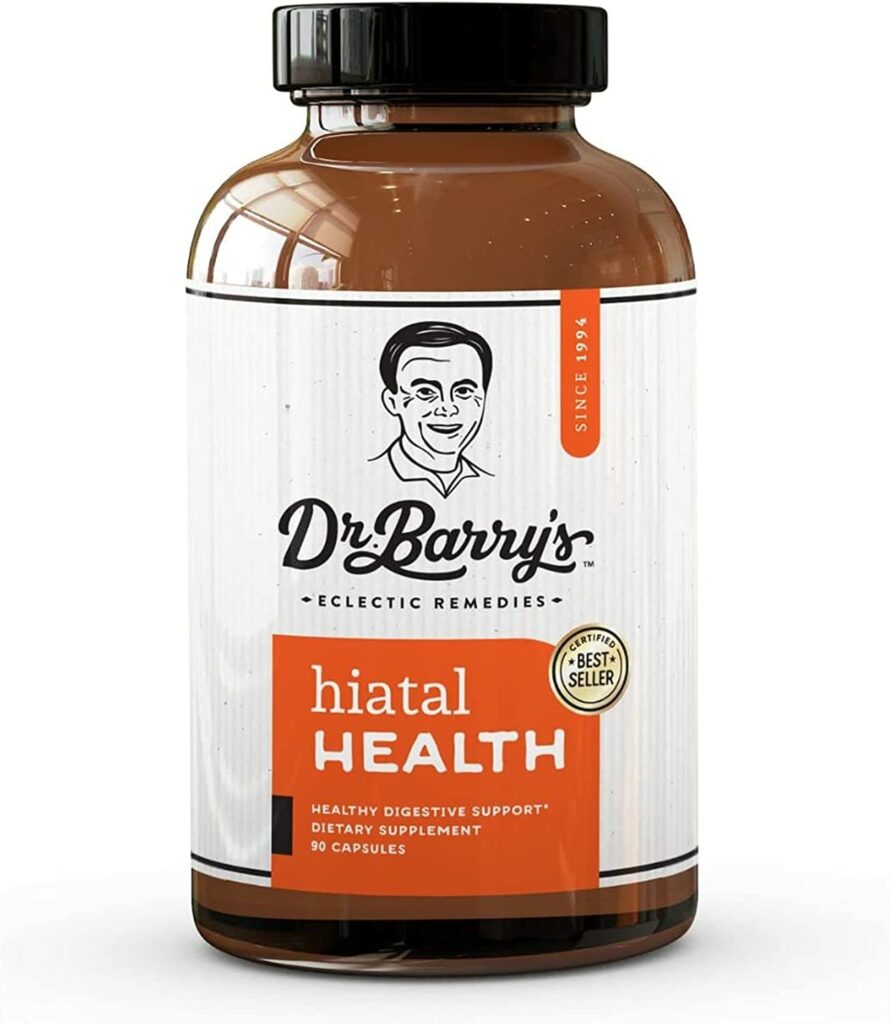If you’re living with GERD, you know that it can cause serious discomfort and disrupt your life.
But there may be a solution available without resorting to harsh medications: natural remedies!
Before you go out and buy yourself every bottle of antacid on the shelves, read through this article to get an overview of 5 natural remedies for GERD.
These scientifically-backed solutions may just give you the relief you need without any of the side effects.
What Is GERD?
So what exactly is GERD?
In a nutshell, it’s a common medical issue that happens when acidic stomach juices flow back up into your throat or mouth and cause irritation.
Symptoms such as heartburn, nausea, regurgitation, chest pain and difficulty swallowing are all signs that you might have GERD.
If left untreated, this painful condition can lead to serious complications such as Barrett’s Esophagus or even cancer.
5 Natural Remedies For GERD
1. GERD Support Supplement
To start things off, one remedy that may help you is a GERD support supplement.
I would recommend Dr. Barry’s Hiatal Health supplement for those who need some sort of supplement to ease their acid reflux discomfort.
With ingredients like milk thistle and manganese, this holistic supplement comes with natural ingredients that can help you with GERD.
Make sure you take it consistently and frequently for the best results, because it does take time to see noticeable changes!
2. Diet Change
For those living with GERD, some of the biggest changes should come in the form of food and beverage intake.
Acidic foods like citrus fruits, many tomatoes and vinegar-based dressings are all triggers that could lead to heartburn and acid reflux symptoms.
Cutting these items out or limiting their intake is an important step towards controlling GERD.
Additionally, carbonated drinks like soda or beer can also contribute to acid reflux flare-ups – so you may want to skip that next round of drinks!
Lastly, healthy eating habits and watching portion sizes are also essential in combating GERD.
3. Increasing Your Fiber Intake
If you suffer from GERD, it’s time to add more fiber-rich foods to your diet.
That’s because research has shown that increasing your fiber intake can help reduce the symptoms of GERD.
When it comes to getting fiber in your diet, there are plenty of delicious options.
Whether you’re looking for veggies or whole grains, there are plenty of great sources out there.
Try adding leafy greens like spinach and kale to salads or topping off stir-fries with beans and lentils for an extra fiber boost.
And don’t forget the importance of whole grains – oats and barley make great additions to breakfast bowls while quinoa is a perfect side dish for dinner.
4. Manage Your Stress
Stress can be a trigger for GERD symptoms like heartburn and indigestion.
But don’t worry, there are some easy ways to reduce your stress and keep your GERD under control.
If you’re feeling overwhelmed by life’s many responsibilities, take a deep breath and remember that reducing stress starts with taking care of yourself first.
Make sure to exercise regularly (but not too close to mealtime), get enough sleep each night, and eat nutritious meals throughout the day.
5. Eat Smaller Meals
In addition to eating healthily, it’s important to practice mindful eating — no eating on the go!
Slow down and savor your food — it may help improve digestion as well as reduce acid reflux symptoms.
Conclusion
In conclusion, GERD can be a pain in the chest, but thankfully there are many natural and affordable solutions.
From managing your stress to taking supplements,, the world is your oyster when it comes to healing yourself with nature’s gifts.
Like anything else, it’s important to try and find what works best for you – so don’t hesitate to try out a few different remedies before settling on one that works.
Lastly, if you’re looking for more on GERD-friendly foods and recipes, we recommend taking a look at the GERD Chef.
Until next time, readers!
